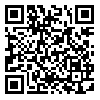Volume 18, Issue 112 (2021)
FSCT 2021, 18(112): 137-151 |
Back to browse issues page
Download citation:
BibTeX | RIS | EndNote | Medlars | ProCite | Reference Manager | RefWorks
Send citation to:



BibTeX | RIS | EndNote | Medlars | ProCite | Reference Manager | RefWorks
Send citation to:
Jafari-Najafabadi F, Fadaei-Noghani V. Comparative investigating the effect of pasteurization and sterilization processes on survival of probiotic bacteria and redox potential of probiotic set-type yoghurt. FSCT 2021; 18 (112) :137-151
URL: http://fsct.modares.ac.ir/article-7-44743-en.html
URL: http://fsct.modares.ac.ir/article-7-44743-en.html
1- Department of Food Science and Technology, Shahr-e-Qods Branch, Islamic Azad University, Tehran, Iran.
2- Department of Food Science and Technology, Shahr-e-Qods Branch, Islamic Azad University, Tehran, Iran. , vn.fadaei@gmail.com
2- Department of Food Science and Technology, Shahr-e-Qods Branch, Islamic Azad University, Tehran, Iran. , vn.fadaei@gmail.com
Abstract: (1754 Views)
In this research, the effect of different thermal processes of milk, pasteurization) 63°C for 30 min, 74°C for 15 s, 95°C for 5 min) and sterilization (120°C for 15 min and 140°C for 2-4 s), on the selective physicochemical, sensory and microbial properties of probiotic yoghurt was investigated during cold storage for 21 days. Results showed that during storage time, syneresis decreased and acidity and redox potential increased (p<0.01). By increasing the severity of thermal processing, the decline in syneresis and redox potential (p<0.01) and the increase in acidity and viability of Lactobacillus acidophilus (p<0.05) and Bifidobacterium lactis was observed (p>0.05). Finally, regarding to the highest sensory evaluation and probiotic bacteria viability, the yoghurt sample produced from milk treated at 140°C for 2-4 s was selected as the best sample.
K
K
Article Type: Original Research |
Subject:
Supplemented foods (probiotics, parabiotics ...)
Received: 2020/07/25 | Accepted: 2020/11/24 | Published: 2021/06/6
Received: 2020/07/25 | Accepted: 2020/11/24 | Published: 2021/06/6
Send email to the article author
| Rights and permissions | |
 |
This work is licensed under a Creative Commons Attribution-NonCommercial 4.0 International License. |








